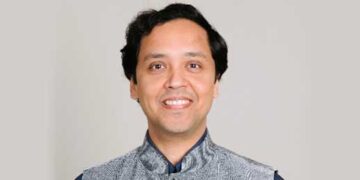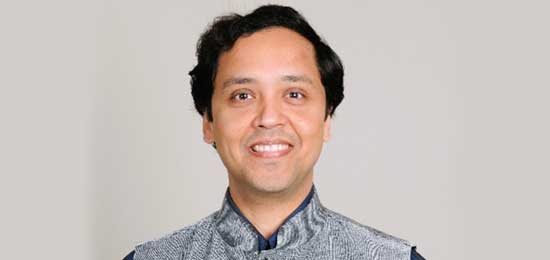 ‘Education is the kindling of a flame, not the filling of a vessel,’ observed Socrates. Interestingly, the term ‘education’ is derived from the Latin root words ‘educare’ and ‘educere’, which mean ‘to bring up’ and ‘to draw out’ or ‘bring forth’. From an etymological perspective, education is a process to unfold the latent innate potential of the individual. While the role of education is to prepare responsible citizens for the nation, responsible education is one that equips students to discharge their responsibilities in a holistic manner. The closest definition of responsible education has been provided by Mahatma Gandhi when he said, “By education I mean an all-round drawing out of the best in child and man—body, mind, and spirit. Literacy in itself is not education.”
‘Education is the kindling of a flame, not the filling of a vessel,’ observed Socrates. Interestingly, the term ‘education’ is derived from the Latin root words ‘educare’ and ‘educere’, which mean ‘to bring up’ and ‘to draw out’ or ‘bring forth’. From an etymological perspective, education is a process to unfold the latent innate potential of the individual. While the role of education is to prepare responsible citizens for the nation, responsible education is one that equips students to discharge their responsibilities in a holistic manner. The closest definition of responsible education has been provided by Mahatma Gandhi when he said, “By education I mean an all-round drawing out of the best in child and man—body, mind, and spirit. Literacy in itself is not education.”
Ironically, education is usually equated with literacy and often becomes an instrument to fill young minds with information and evaluate their capacity to regurgitate this during examinations. In the age of internet and AI, does this serve the true purpose of education, for which nearly two decades of a student’s life are invested? To achieve its true purpose, education should cater to the development of all aspects of students’ personality – physical, mental, emotional, intellectual, and spiritual. It must equip them to provide solutions to 21st century problems, trainthem to take inclusive decisions and make pro-planet choices. For this very purpose, the National Education Policy (NEP) 2020 has underscored the role of holistic education and global citizenship education such that higher education institutions (HEIs) can nurture students with nobility and ability.
The National Higher Education Qualifications Framework Report released by the University Grants Commission (UGC) in 2022 provides qualitative indicators and descriptors for measuring learning outcomes in the areas connected with holistic education as identified in NEP 2020. These can be divided into four thematic focus areas such that a student is prepared to make positive contributions at four distinct levels – planetary, society, community, and individual. This approach as elaborated below can become the broad framework to deliver curricular and co-curricular aspects of higher education.
1. Environmental Awareness and Action (Planetary-level)
As we work towards our national goal of achieving net zero emissions by 2070, India’s growth story must balance economy with ecology. For this, students should be able to apply their knowledge and skills, attitudes, and values for recognising environmental and sustainability issues, participating in actions to promote sustainable development, and mitigating the effects of environmental degradation, climate change and pollution in their personal and professional lives. This role of education resonates with Rabindranath Tagore’s theory of education which mirrored his intense love for Nature expressed “through reverence to the divinity inherent in fire, water and trees, in everything moving and growing”.In the current decade, this can be achieved in tangible ways if the Higher Education ecosystem (teaching-learning, research, and infrastructure) can be mapped with the 17 UN Sustainable Development Goals (SDGs) and its 169 parameters such that crores of students are trained to see life and livelihood through the lens of sustainability and inclusiveness.A recent study report by the Association of Indian Universities provides insights on how HEIs can help achieve SDGs for a better and more sustainable future for all. Innovationsby Indian HEIs could become templates for our peer nations.
2. Values Inculcation(Society-level)
The irony of contemporary timeswas aptly described by Martin Luther King Jr. who famously said in 1963, “Our scientific power has outrun our spiritual power. We have guided missiles and misguided men.”Hence, developing responsible world citizens who are active promoters of peaceful and secure societies is going to be vital for the 21st century. Human values-based education can play a vital role in enabling students to embrace and practice constitutional, ethical, and moral values in life. The NEP specifically underscores the inculcation of universal human values likeSatya (truth), Dharma (righteous conduct), Shanti (peace), Prema (love), and Ahimsa (non-violence).
3. Community Engagement and Service (Local Community-level)
While delivering his first address to the Chairmen of IITs at the Rashtrapati Bhavan in August 2014, Prime Minister Modi provided practical advice on linking education with seva or community service. He said, “…Give projects related to local needs and requirements to students, so that they can find innovative solutions as they pursue their studies. This would lead to a positive change in the quality of life of people, besides instilling a sense of ‘service’ towards the nation, among the bright young minds…” HEIs can help local trade and creative traditions through pro-bono capacity building of and student internships in MSMEs/social enterprises that could enhance decentralised economic potential, create livelihoods along with nurturing the centuries-long native product traditions (Lok Vidya), and enhance social sensitivity among students. Interestingly, several leading corporations mandate a quarter-long internship in rural areas as part of their year-long induction programme for high-potential young recruits as it helps in broadening their horizons of awareness and understanding and take win-win decisions.
4. Multicultural Competence and Empathy(Individual-level)
“Educating the mind without educating the heart is no education at all”, observed Aristotle. In a country as incredibly diverse as India, students should be able to appreciate the values and beliefs of multiple cultures and honour diversity. The ability to understand the perspectiveof another individual or groups, and to empathise with other people’s emotions is a vital competency to succeed in heterogenous teams. Hence a student’s Intelligence Quotient (IQ) needs to be integrated with Emotional Quotient (EQ), and Spiritual Quotient (SQ).Professionals in the 21st century will need to develop EQ and SQ in immense measure. A leader can outsource parts of subject expertise, but the virtues of collaboration, persistence, and resilience must be one’s second nature as one rises the ladder.
It was late JRD Tata, founder of Air India and the only industrialist to be conferred the Bharat Ratna, who famously said, “I donot want India to be an economic superpower. I want India to be a happy country.” While we do wish to assert ourselves as a socio-economic superpower, we also wish to be a happy country. To achieve this balance, responsible education delivered in our HEIs will play a foundational role.
The author is Senior Specialist (Higher Education) at NITI Aayog.
Views expressed are personal.
















